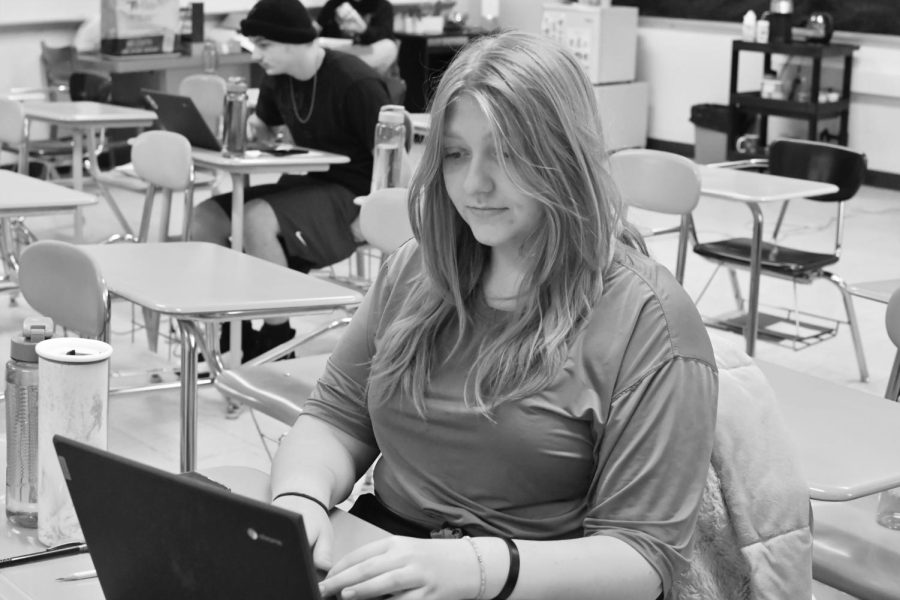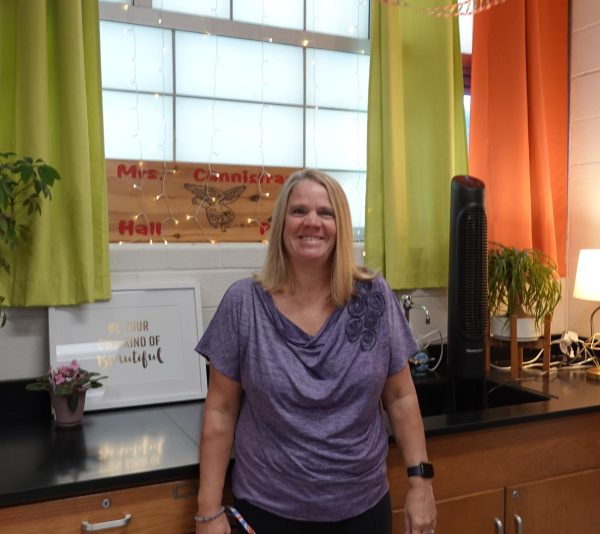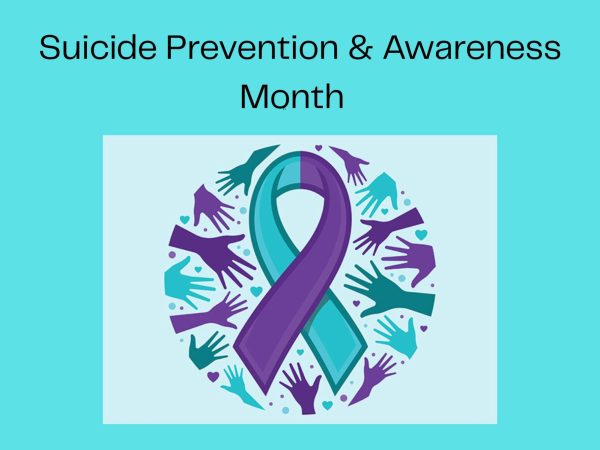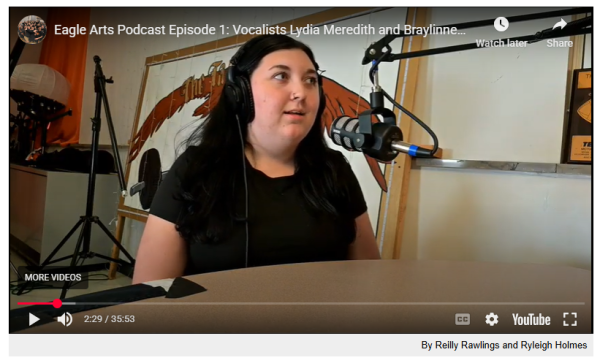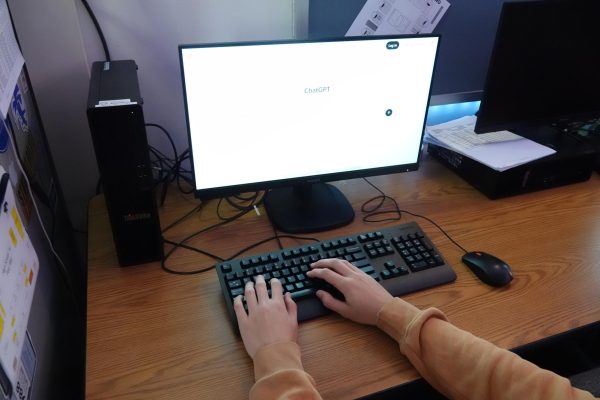TASD Cyber Program Seeing Steady Growth
Sophomore cyber student Ava Bickel comes into the school often to get help with her online classes.
With the increased availability of online schools, Pennsylvania students have more educational options than ever. Fully online programs first emerged in the 1990s but since the pandemic, online K-12 programs have exploded in popularity.
According to a 2022 Pennsylvania School Boards Association report, over 60,000 Pennsylvania public school students are currently enrolled in online cyber charter schools in the state. Cyber charter school and home school enrollment has seen a 59% increase in Pennsylvania in just three years.
If a student chooses to attend one of the 14 accredited public cyber charter schools in Pennsylvania, that student’s tax dollars go to the cyber school. School districts like Tyrone lose significant funding from the state for each student who lives in the district and attends a cyber charter school.
As a result, many traditional brick-and-mortar public schools like Tyrone have expanded their online options, both to retain students and to make alternative forms of instruction more accessible.
While Tyrone’s online school option predates the pandemic, enrollment in the program has increased dramatically over the past three years.
Online classes are available to any student in the Tyrone Area School District. Students in the TASD Cyber Academy receive a TASD diploma and graduate with their class.
Tyrone Area School District cyber coordinator Lindsay Miksich said that there are currently 189 students enrolled in the district’s cyber program, and that number has been growing.
“Since the beginning of the school year, we have added approximately 50 students to the program. I have only had a handful of students return to the building, mostly at the elementary and middle school level,” said Miksich.
Benefits of Cyber School
According to Miksich, the benefits of the cyber program are most felt by students who have unique circumstances or opportunities that require them to have a more flexible schedule.
“I enjoy the fact that I can work on my own schedule and not be rushed in any classes. It gives me a sense of self-responsibility and decision-making that I normally wouldn’t get in other classes,” said junior TAHS cyber student Caden Morder.
Another student who recently chose to enroll in the district’s cyber program is senior Piper Christine.
“I have a lot of things going on outside of school, and this helps me have time for those things. It also really benefits me because people who struggle with mental health have more time to be able to focus on themselves and take care of themselves,” said Christine. “I enjoy how I can do homework or quizzes at my own pace, and not feel like I am being rushed. I have more time to do my work, and it personally helps me with not being as stressed out as I usually am.”
Some opportunities that Tyrone cyber students have over students in other cyber charter schools are the option of working in the quiet study room in the building, meeting in person with teachers during their office hours, and attending on-site after-school academic support.
Morder said he has taken advantage of these opportunities and they make cyber school easier.
“I come into the building for quiet study from 8-12. Some of the benefits of cyber are that you can work on the subject that you would like to work on when you would like to work on it. Cyber gives me time to get ahead in my classes and work on my own projects at home,” said Morder.
If students are struggling, but can’t come to the building, they are able to email teachers or set up Zoom conferences and phone calls.
“I genuinely like being able to work at my own pace and I like to work by myself on all of the assignments. I go to quiet study, so my point of view might be different from others. However, it is really nice that I have all day to do what I need to do on my own time. I can also ask for help whenever I need it,” said sophomore Tara Nicodemus.
Nicodemus also likes the fact that she has more control over her time than a student in the traditional in-person school setting.
“I have the option to change my schedule throughout the school year; when I come in and when I don’t. I was coming in on Mondays and Fridays, but I needed more help so now I’m in the building Monday through Thursday and I’m at home on Friday,” said Nicodemus.
Online Education: Different, Not Easier
Despite the popular opinion that cyber school is easier or does not require as much effort, online students who slack off in Tyrone’s cyber program will not pass their classes.
Miksich said that there are requirements in place to monitor students and ensure they are actively engaged and learning.
“Typically, a full-time cyber student should plan to spend approximately five hours per day on assignments. This time includes viewing tutorials, completing guided notes, completing practice problems, reading passages, and other work,” said Miksich.
Five hours of cyber instruction is considered almost equal to a student’s instructional time in the building. During a traditional school day, students are scheduled into eight 42-minute class periods, a 25-minute advisory period, a 30-minute lunch, and a three-minute transition between each class. That adds up to just over five and one-half hours if the non-instructional time is subtracted from the traditional school day.
Miksich said she is constantly checking the progress of students and communicating with them and their parents via email.
She runs an attendance report each morning and attends weekly meetings at the middle and high school to review student grades and progress with administrators and counselors.
Drawbacks of Online Instruction
Not everyone is successful with online education and according to students, there are drawbacks to online instruction.
“In some of my classes, you just read notes and take a test. I feel like I’m not learning as much that way. Again, personal preference, but I like to be where there are different kinds of learning happening, not just reading and testing,” said Nicodemus.
Another problem with online learning is the lack of hands-on activities.
“I think the major downfall is that if you are cyber you can’t really do hands-on learning most of the time, and that is a huge way many people learn. Personally, I don’t need to do things in a hands-on way, however some kids might,” said Nicodemus.
Miksich said that while all students have the opportunity to choose a learning environment that best fits their needs, it takes a lot of effort and a certain type of personality to succeed online environment.
“Cyber school is not for everybody,” said Miksich, “A student really has to be self-motivated and disciplined in order to be successful. The most successful cyber students create a home schedule, check and respond to emails regularly, ask their teachers for assistance, follow the courses as expected, meet daily attendance requirements, and complete all assigned work.”
Many students struggle with online learning due to the lack of immediate feedback, lack of interaction with peers and teachers, and the lack of extracurricular opportunities that in-person learning has to offer.
Another problem with online instruction is ensuring academic honesty. Miksich said that students trying to cheat on their online work is a constant issue that teachers are continually addressing.
“As cyber education evolves, students have found ways to “beat the system,” but cyber teachers are also finding ways to uphold the integrity and rigor of an online program,” said Miksich.
“Some of our math and science teachers are moving away from a ‘canned’ curriculum to create their own cyber courses via Canvas,” said Miksich. “Some cyber teachers have moved to ‘drop boxes’ within their courses to make sure students submit required assignments, while other teachers have created Canvas pages that mirror what is happening in the building. As a collective group, we are looking at adding more rigorous, project-based, and open-ended assignments to our cyber program.”
Coming Back to Traditional Education
Some students who have given online instruction a try have decided to return to the traditional classroom.
Miksich said that while there are more students leaving the building in favor of cyber classes, there are also a number of students who have tried online education but have returned to traditional in-person instruction.
Eighth-grader Teagan Sharer is one of those students. Sharer returned to in-person instruction after spending the first semester online because being at home and alone for much of the day negatively impacted her social interactions.
“I decided to come back because I have sports I want to play and I can see my friends. I like seeing my friends in school. I actually learn [better] with a teacher in front of me helping. There are definitely negative effects of not seeing your friends,” said Sharer.
Tyrone senior Alexa Rachau was enrolled in the cyber program during her junior year but decided to return to in-person instruction as a senior.
“I wanted to come back [in person] for my senior year. There were things that I liked about cyber, but I felt out of the loop and wanted to see my friends,” said Rachau.
Managing the Transition
According to Miksich, transitioning to and from cyber can be very difficult for students and teachers so the school has established harder deadlines and stricter policies regarding when students can enter and leave the cyber program.
She said that the current policy is that if a student enters the cyber program, they must remain in the cyber program for the entire semester, rather than being allowed to move in and out of the program during the course of a semester.
The policy is designed to help students and teachers make a smooth transition between learning environments.
Students who are interested in making a change to online education or back to traditional in-person instruction for the 2023-2024 school year should contact the guidance office as soon as possible.
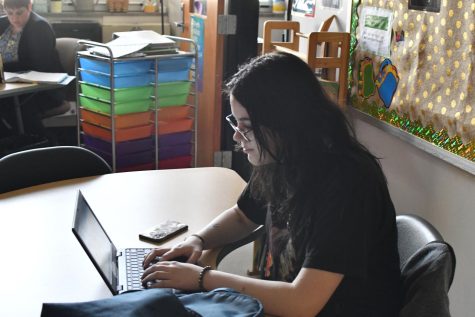

Hailey Vanish is in her fourth and final year as a member of Tyrone Eagle Eye Newspaper. As she enters her senior year, she hopes to write more stories...

Victoria is a senior at Tyrone High School and is new to the Eagle Eye staff. She is also a part of the Yearbook staff this year. She is quite excited...




